JOIN US! TMS Education Event - Tuesday, April 9th 5:30pm pst - Click to learn more!
Innovative Depression Treatment for Teens and College Graduates
Young adults are faced with a set of challenges that only apply to their age group, and the stress of navigating major lifestyle changes can be made even more challenging when suffering from mental health disorders such as depression.
While traditional treatment approaches can be useful for combating these challenges, they have limitations. Many patients find traditional methods to be ineffective, yet Accelerated TMS has emerged as an innovative methodology that can help to provide patients with quicker symptom relief and improved quality of life with as little as one treatment.
This article will explore the various depression treatments for teenagers and college graduates, highlighting the benefits and drawbacks of each and discussing why Accelerated TMS can be the most effective option in a variety of cases.

What is Accelerated TMS?
Transcranial Magnetic Stimulation (TMS) is a non-invasive mental health therapy that uses magnetic fields to stimulate specific areas of the brain. The process involves resting an electromagnetic coil against the scalp, which can then generate magnetic pulses to modulate the activity of specific brain circuits.
By stimulating or inhibiting certain brain regions, TMS can alter neural circuits and alleviate symptoms of various neurological and psychiatric disorders, such as depression.
There are various kinds of TMS therapy available to patients, including Accelerated TMS (aTMS), Repetitive TMS (rTMS), Theta Burst Stimulation (TBS), and Deep TMS (dTMS). Both rTMS and TBS are characterized by their delivery method, where a series of repeated magnetic pulses are used to target a specific region of the brain. Where they differ, is that TBS uses a more rapid and patterned delivery of pulses. dTMS, on the other hand, uses specialized coils to target deeper brain regions that are not easily accessible with standard TMS.
Accelerated TMS, meanwhile, offers the most efficient treatment course for patients. aTMS is characterized by multiple treatment sessions in a single day, utilizing similar methods to rTMS except with a 2-week timeline for alleviating depression symptoms as opposed to multiple months. Studies have shown that the method can drastically improve the speed at which patients achieve remission while maintaining an
excellent safety profile.
What makes Accelerated TMS different from other treatment options?
Since we’ve now established the key differences between aTMS and other forms of TMS, it’s important to consider the differences between TMS itself and traditional treatments for depression.
The two most common practices for combating depression in patients of all ages are medication and psychotherapy. While each method has been proven to work in some cases, each method has its limitations as well. Many patients do not respond well to psychotherapy, while some patients have found antidepressant medication to be ineffective for alleviating their symptoms.

The pros and cons of antidepressant medication
Medication is an important part of the treatment approach for depression in both teenagers and college-aged individuals, and it’s often the first-line for pharmacological treatment. Common antidepressants prescribed for young adults include selective serotonin reuptake inhibitors (SSRIs) such as fluoxetine (Prozac), sertaline (Zoloft), and escitalopram (Lexapro).
Studies have found that SSRIs typically have a
30% rate of efficacy when it comes to reducing symptoms of depression, and the treatment protocol is considered a perpetual cycle where patients should keep on top of their daily intake in order to achieve results.
Special considerations are made when prescribing antidepressants to young adults, including the careful monitoring of potential side effects and closely following up with healthcare providers to assess the medication’s effectiveness. Teenagers and college-aged individuals may be more sensitive to medication, and there can also be instances where treatment is resisted for a variety of reasons.
Teenagers and college graduates may experience more pronounced side effects from SSRIs, including nausea, headaches, and changes in sleep patterns. There is also a higher risk of suicidal thoughts for young adults during the initial stages of their treatment, and since patients in this age bracket are still undergoing brain development, clinicians are advised to exercise caution when prescribing medication.
| Pros | Cons |
|---|---|
| Can be prescribed immediately after a diagnosis | The perpetual cycle of taking medication can be challenging to maintain |
| SSRIs are proven to be very safe and relatively effective for combating depression | Young adults may experience more pronounced side effects |
| Patients can feel symptom relief within 2-4 weeks of starting a treatment protocol | Young adults may naturally be treatment-resistant |
The pros and cons of psychotherapy
Psychotherapy can also play a crucial role in the treatment of depression for young adults. There are various kinds of psychotherapy, including Cognitive-Behavioral Therapy (CBT), Interpersonal Therapy (IPT), family therapy, and psychoeducation:
- Cognitive-Behavioral Therapy (CBT): CBT is a widely used and evidence-based psychotherapy approach, helping teens and college graduates to identify negative thought patterns that contribute to their depression.
- Interpersonal Therapy (IPT): IPT focuses on improving the patient’s interpersonal relationships, as well as their communication skills, which can be particularly beneficial for young adults experiencing abrupt life changes or social difficulties.
- Family Therapy: Involving the teenager's family in the treatment process can be helpful, as it addresses family dynamics and supports the teen's overall well-being.
- Psychoeducation: Educating the patient and their family or support structure about depression, its symptoms, and effective coping strategies is an important aspect of the psychotherapy approach.
In teenagers and college-aged individuals, psychotherapy can provide a supportive environment for the patient to explore their thoughts, feelings and behaviors. This helps to develop coping strategies and improve overall mental well-being, with up to 75% of patients claiming to see some kind of benefit after consistently undergoing psychotherapy.
However, access to qualified mental health professionals with expertise in treating depression in young adults can be challenging, especially in certain geographic areas or socioeconomic settings. Likewise, the availability of mental health services on college campuses can also be limited, leading to long waitlists or insufficient resources to meet the needs of the patient.
Additionally, one of the major limitations for psychotherapy in teenagers and college graduates is that the patient may struggle with the commitment required for regular psychotherapy sessions, particularly if they are experiencing symptoms that impair their motivation or ability to attend appointments consistently.
Studies have found that the rate of efficacy for psychotherapy drops substantially when a patient has not consistently engaged with their therapist. While 75% of patients do see a benefit after 20 sessions, only 50% see a benefit below this mark, which shows
the importance of consistent action in the realm of psychotherapy.
| Pros | Cons |
|---|---|
| Enables patients to understand their mood disorder | Limited access to therapists in certain locations |
| Provides a safe environment to develop coping strategies | Mental health stigma can cause resistance or reluctance on the side of the patient |
| Can prove beneficial for patients who are receptive to the treatment |
Is Accelerated TMS the right treatment protocol for me?
Accelerated TMS (aTMS) is a new-age approach to treating depression in people of all age groups, and it’s considered to be one of the most innovative approaches available in the modern day. aTMS is perfectly suited for young adults who have treatment-resistant depression for several key reasons, and studies show that it has a higher rate of efficacy too.
The accelerated protocol of aTMS, which involves delivering multiple TMS sessions per day, aims to produce a more rapid antidepressant effect compared to both the standard TMS protocol and traditional treatment methods. This can be particularly beneficial for patients with treatment-resistant depression, as quicker symptom relief can increase patient receptiveness.
aTMS also has a much shorter treatment regimen compared to traditional methods. Psychotherapy is thought to be relatively ineffective with fewer than 20 sessions, meaning that it can take several months before seeing results. Similarly, it can take 4-6 weeks before the body adjusts to antidepressant medication.
So, accelerated TMS may be the ideal treatment for patients who have found traditional methods to be ineffective. Patients with treatment-resistant depression may require a more personalized approach, and the flexibility of aTMS protocols allows healthcare providers to adjust the intensity and frequency of the treatment depending on the patient’s needs.

Taking a comprehensive approach to fighting depression
Treating depression with a multi-modal approach offers some major benefits, meaning that Accelerated TMS can be used in conjunction with traditional treatment methods for sustained symptom relief. Particularly for young adults, where depression is often accompanied by comorbidities such as anxiety, substance abuse, or trauma, a multi-modal approach allows for coordinated treatment of complex issues and more effective intervention.
Teenagers and college graduates have unique developmental needs and specific environmental factors that can influence their depression. A comprehensive approach enables healthcare providers to tailor the treatment plan to the individual’s needs, which has been found to
improve treatment outcomes when compared to single-treatment approaches.
In all cases, young people with depression need to navigate important life transitions. These stressors can trigger bouts of depression and various health problems, where a tailored course of treatment represents the best approach. Combining aTMS with traditional methods such as medication and psychotherapy can combine the benefits of each protocol, including rapid symptom relief, sustained pharmacological care, and a personalized support structure.
Resources and support
Teenagers, college graduates, parents, and guardians can find some great resources to help them through their journey and the various challenges that it involves, and you can also find some great research conducted by Stanford University about the effectiveness of Accelerated TMS in treatment-resistant cases.
National Institute of Mental Health (NIMH)
The NIMH provides extensive educational materials on depression and other mental health conditions that affect young people. Their website (www.nimh.nih.gov) has dedicated sections for teenagers, college students, and their families.
Mental Health America (MHA)
MHA is a leading community-based nonprofit organization in the United States that offers resources, support groups, and advocacy for individuals living with mental health conditions. Their website (www.mhanational.org) has a specific section for guiding young adults.
Local mental health services
Many communities have mental health clinics, counseling centers, or support groups that are specifically tailored to teenagers and young adults. These can be found through local healthcare providers, schools, or community orgnizations.
College counseling centers
Most colleges and universities have on-campus conseling centers that offer mental health services, including therapy, support groups, and referrals for students struggling with depression or other mental health concerns.
Crisis Hotlines
For immediate support, crisis hotlines such as the National Suicide Prevention Lifeline (1-800-273-8255) or the Crisis Text Line (text HOME to 741741) provide free, confidential assistance 24/7.
Reading material
- Diagnostic and Statistical Manual of Mental Disorders, by American Psychiatric Association
- Stanford Accelerated Intelligent Neuromodulation Therapy for Treatment-Resistant Depression, by Eleanor J Cole et al.

A Final Word
For teenagers and college graduates struggling with depression or other mood disorders, it’s crucial to find effective treatment regimens as soon as possible. Early intervention helps to reduce the possibility of complex issues arising, and ultimately, it can help to enhance the patient’s quality of life once an effective treatment plan is found.
If you or someone you know is suffering from depression, then don’t hesitate to reach out to a healthcare professional for comprehensive support.
Kind Health TMS offers Accelerated TMS treatment protocols for teenagers and college graduates, especially in cases where traditional methods have been ineffective.
We provide a level of support that is tailored to each individual’s needs, and can advise you on every step of the journey as we aim to reduce depressive symptoms and achieve a better quality of life for our patients.

Meet the Author
Dr. Georgine Nanos, MD, MPH
Founder of Kind Health Group

